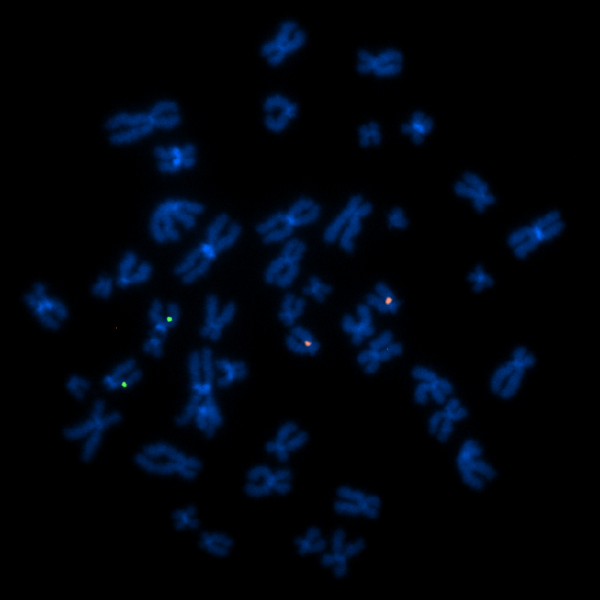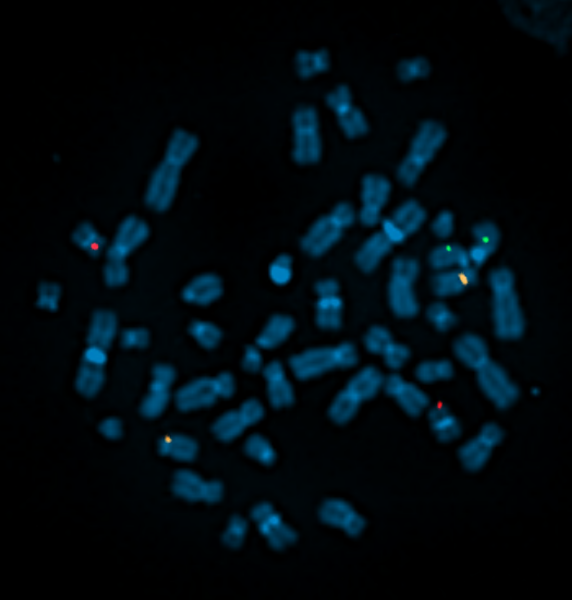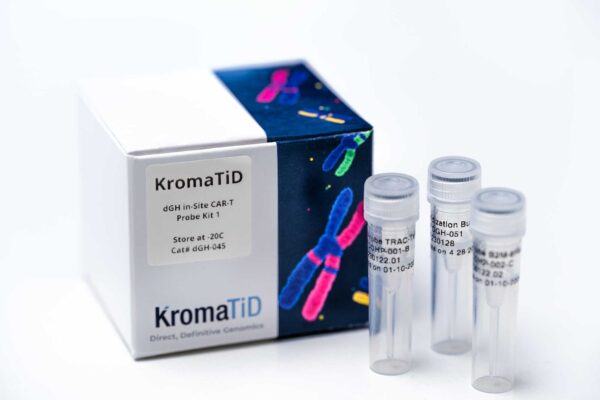dGH in-Site™ CAR-T Probes
Detect structural rearrangements at CAR-T loci of interest associated with gene editing and cellular engineering modifications.

Directly Visualize the Structure of on- and off-target DNA Edit Sites and Mapping of Transgene Insertions. Anywhere in the Genome.
dGH in-Site™ Probes provide single-cell, in situ hybridization assays. dGH data enables detection of low-level abnormalities missed in sequencing data from pooled DNA samples, and provides data orthogonal and complementary to sequencing and G-banding. dGH is able to detect smaller inversions than FISH, and provides you with a comprehensive data set for your cellular engineering methods to provide genomic safety and stability data for analysis.
Key features of dGH™ technology:
- Ultra-high resolution, as low as 2 kb.
- High signal-to-noise ratio boosts scoring confidence and efficiency.
- Cell preparation yields single-stranded metaphase chromosomes.
- Single-stranded fluorescent probes provide direct visualization of editing outcomes including orientation and balanced/unbalanced structural variants.
- Custom Probes available for any gene target and fluorophore.
Still have questions? Chat with us by using our chat box, we are available 9a-5p MST!

Above Fig.: dGH in-Site™ probes for TRAC (orange), B2M (green) and CIITA (red) on GM14907 control lymphoblastoid cell line.
High-Value Editing Targets in CAR-T Cell Engineering.
The TRAC, CIITA and B2M genes are high-value editing targets in CAR-T cell engineering. Disabling them goes far towards mitigating the risk of graft versus host disease (GvHD) and towards ensuring modified T cells survive in a patient’s body long enough to reduce their tumor burden. However, editing methods are imperfect and can trigger unanticipated structural rearrangements at the edit sites. Some of these changes can be challenging to detect, especially when they result in no gain or loss of chromosomal material, or when they involve repetitive DNA.
dGH in-Site technology provides high-resolution data on the outcome of editing experiments with tailor-made TRAC, CIITA and B2M probes. These assay components can reveal rearrangements ranging from single-digit kilobase inversions, to translocations and deletions. Data supporting the safety profile of a therapy product needs to stand up to high regulatory standards, and dGH technology can provide a comprehensive picture of editing outcomes which other assays simply cannot.
*For use in metaphase cells fixed with 3:1 MeOH:Acetic acid.
Order Below
Showing 1 - 1 out of 1
Page 1 out of 1
| Product | Locus | Product Contents | Price | Quantity | Add to Cart |
|---|---|---|---|---|---|
|
|
|
$0.00 – $1,720.00
|
|

